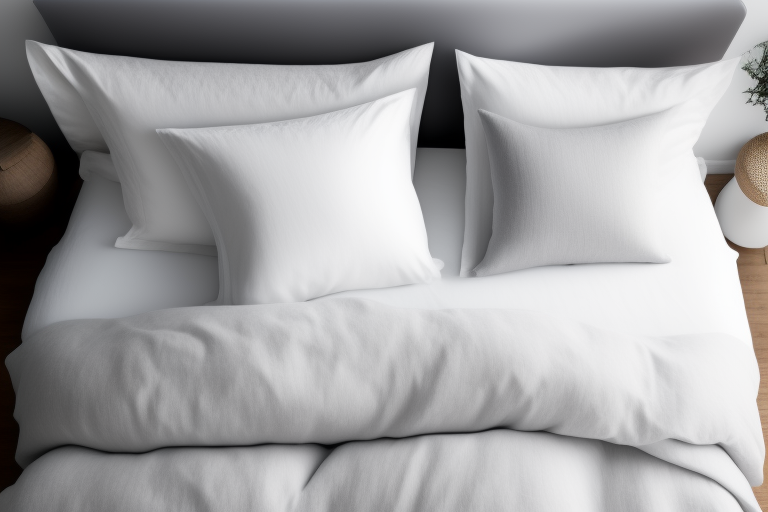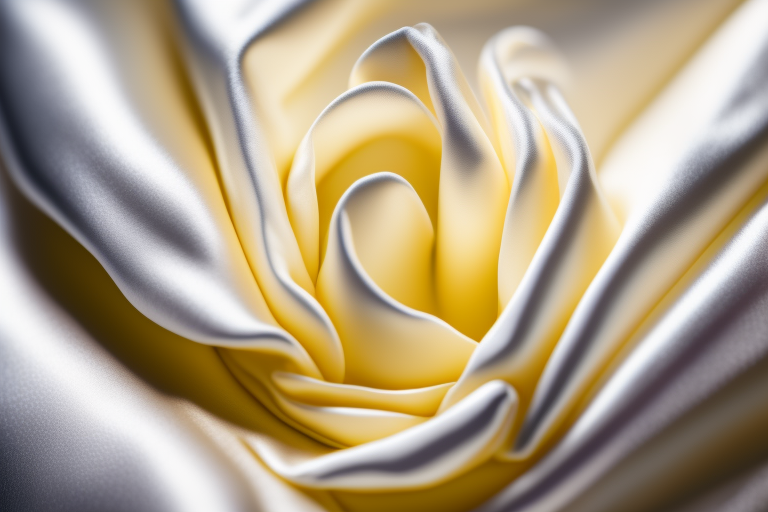Do you want to upgrade your bedding to a luxurious oasis that feels like a five-star hotel? Choosing the right materials is crucial for getting bedding that is supremely soft, comfortable, and durable. This beginner’s guide will walk you through the key factors to consider and the top materials for luxury bedding so you can find your perfect bedding match.
Why Material Matters for Luxury Bedding
The fabric your sheets, comforter, pillowcases, and other bedding are made from determines factors like:
- Softness – Some materials like Egyptian cotton and silk have a naturally smooth, soft handfeel.
- Breathability – Fabrics like linen and eucalyptus are very breathable, which helps regulate temperature.
- Moisture-wicking – Materials like bamboo pull moisture away from your skin, keeping you drier.
- Durability – Higher thread counts and special weaves improve durability for fabrics like cotton.
- Hypoallergenic properties – Certain materials like bamboo and microfiber are less likely to provoke allergies.
- Eco-friendliness – Organic cotton, linen, and lyocell are more sustainable options.
- Cost – Rare fibers like cashmere come with a higher price tag than synthetic blends.
Consider what features matter most to you as you evaluate different luxury bedding materials.
Key Factors for Choosing Luxury Bedding Materials
Keep the following factors in mind as you compare different fabric options for luxury bedding:
Comfort
The best bedding feels sublime against your skin and helps regulate your body temperature for a comfortable night’s sleep. Look for materials that are:
- Soft – Smooth, silky fibers feel most luxurious. Silk and high-quality cotton blends are known for softness.
- Breathable – Fabrics that allow airflow help dissipate body heat. Linen and cotton are very breathable.
- Moisture-wicking – Pulling moisture away from your skin prevents overheating. Bamboo and modal excel at moisture-wicking.
- Temperature regulating – Materials that help balance your body temperature prevent sweating or chills. Wool and eucalyptus are great insulators.
Durability
You don’t want your luxury bedding to pill, tear, or lose its shape after a few washes. Seek out materials known for:
- High thread count – For cotton, aim for 400-600 thread count or higher.
- Dense weave – Tightly woven fabrics resist tears and withstand use.
- Heft and weight – More substantial, heavier materials tend to be more durable.
- Insulation – Materials that trap air like down provide durability and warmth.
Hypoallergenic Properties
If you have allergies, seek out bedding materials less likely to provoke reactions, like:
- Bamboo
- Microfiber
- Modal
- Organic fibers
- Synthetic blends
Avoid materials like wool or down if you are allergy-prone.
Eco-Friendliness
For bedding that is better for people and the planet, look for materials like:
- Organic cotton
- Linen
- Lyocell
- Recycled polyester
- Natural fibers
Cost
Price often aligns with quality and luxury for bedding materials. Some cost more due to being rare or labor-intensive to produce.
Most expensive: Silk, cashmere, high-quality cotton
Mid-range price: Bamboo, linen, modal
Most affordable: Synthetic and synthetic blends
Set a budget before shopping so you can target the right materials for your price point.

Comparison of Top Luxury Bedding Materials
Now that you know what to look for, here’s an overview of the benefits and drawbacks of the most luxurious bedding materials:
Silk
Pros: Extremely soft and smooth, temperature regulating, lightweight breathability, hypoallergenic
Cons: Delicate and requires dry cleaning, expensive, prone to stains
Cost: $200+ for a queen sheet set
Cotton
Pros: Breathable, soft once broken in, durable with high thread count, easy to launder
Cons: Can pill with low thread count, not as soft as silk initially
Cost: $80-$500+ depending on thread count
Linen
Pros: Very breathable, antimicrobial, durable, absorbs moisture well, eco-friendly
Cons: Wrinkles easily, stiff when new, prone to shrinkage
Cost: $120-$300+ for a queen sheet set
Wool
Pros: Warm, breathable, durable, naturally moisture-wicking, eco-friendly
Cons: Can be itchy, expensive, requires gentle washing
Cost: $200+ for a queen sheet set
Bamboo
Pros: Very soft, moisture-wicking, breathable, hypoallergenic, eco-friendly
Cons: Prone to pilling, less durable than cotton
Cost: $80-$200 for a queen sheet set
Microfiber
Pros: Inexpensive, durable, easy to launder, wrinkle resistant, lightweight
Cons: Can be stiff and produce heat retention, prone to pilling
Cost: $30-$80 for a queen sheet set
Satin
Pros: Extremely smooth and soft on skin, glossy appearance, affordable
Cons: Stains easily, prone to snags, slippery, prone to static
Cost: $50-$120 for a queen sheet set
Flannel
Pros: Soft, warm, breathable, affordable, easy to wash
Cons: Can shrink, fade, or pill with low quality, bulky
Cost: $50-$150 for a queen sheet set
How to Choose the Best Luxury Bedding Materials for You
With this overview of the top bedding materials, you can narrow down your options by considering:
- Your budget – Silk and cashmere are premium. Bamboo, cotton, and linen are mid-range. Microfiber and polyester blends are budget-friendly.
- Your climate – Lightweight, breathable linen and cotton work best in warm weather. Wool, flannel, and cashmere provide insulation for cold climates.
- Your comfort preferences – Seek ultra-soft silk or satin if smoothness is key. Prioritize moisture-wicking properties in humid regions.
- Allergies or sensitivities – Avoid materials like wool or down if you have allergies. Cotton and synthetics are typically hypoallergenic.
- Care requirements – Some fabrics like silk require dry cleaning. Cotton, microfiber, and polyester blends are easier to launder.

Sleep in Luxury with the Perfect Bedding
Your bedding material impacts everything from the feel against your skin to how well you sleep at night. Now that you know how to compare factors like softness, breathability, durability and cost, you can upgrade your top sheet, fitted sheet, pillowcases, and comforter to a luxury material tailored for your preferences. Treat yourself to that Hotel Collection quality bedding you’ve always dreamed of so you can rest easy every single night.
Frequently Asked Questions
What thread count is best for luxury bedding?
For cotton sheets, a thread count between 400-600 will provide the optimal balance of softness and durability. Go higher if you want ultra-soft bedding – luxury cottons like Egyptian or Pima can have a thread count up to 1500. But be wary of inflated thread counts over 1000, as it could be a sign of false advertising.
What are the softest bedding materials?
The softest, smoothest bedding fabrics are silk, high-quality cotton varieties like Egyptian or Supima, cashmere, modal, microfiber, satin, flannel and bamboo. Silk is the gold standard for incredibly soft, luxurious bedding.
What are the most breathable bedding fabrics?
The most breathable bedding materials are linen, cotton, eucalyptus, bamboo and wool. These natural fibers allow increased airflow to prevent overheating at night. Linen excels at moisture-wicking and dissipating heat.
Is Egyptian cotton worth it for sheets?
Yes, Egyptian cotton is worth investing in for luxury bedding. The long cotton fibers create durable, soft sheets that get even softer with washing. Pay attention to thread count and weave. Percale weave Egyptian cotton sheets with a 400+ thread count will provide the ideal soft, durable bedding.
What bedding material is the most durable?
Linen and high-quality cotton sheets are the most durable and long-lasting bedding materials. Linen becomes softer and better with age. Look for heavyweight cotton percale sheets with a thread count above 400. Polyester and microfiber sheets are also quite durable and wrinkle resistant.








